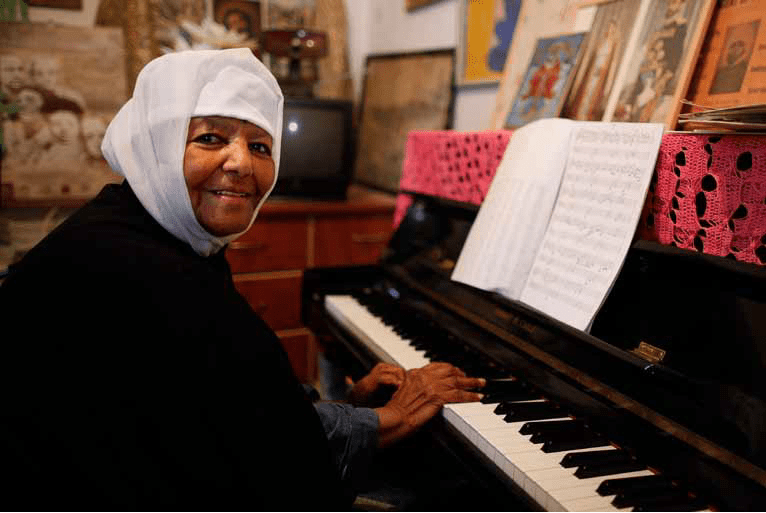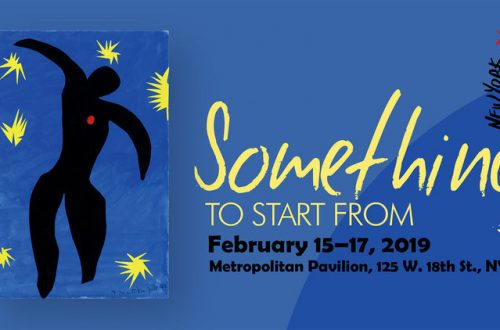by Abbey von Gohren
Emahoy Tsegué-Maryam Guèbrou is only one year shy of 100 years old, but she still practices her piano for seven hours a day.
As a nun in the Ethiopian Orthodox Church, her daily responsibilities are considerable. Emahoy is a title in the Amharic language meaning “female monk” given to women who have received the Holy Orders of Monastic Life in the Ethiopian Orthodox Tewahedo Church. Still, she has managed to devote a great portion of her day to playing and composing music – for every one of those 99 years. Her life, in fact, has taken many dramatic and complex turns, but her love of music has remained a constant. Her style of composition and performance is unique to her, a kaleidoscopic celebration of everything she has personally encountered in her nearly 100 years: classical violin, elite African imperial bandleaders, 1960s jazz, ancient liturgical Ethiopian chant, Hebrew prayers, and more.
Yewubdar Guèbrou was born in 1923 in Adis Abbaba to well-to-do parents who sent her and her sister to Switzerland for boarding school, where they also had the opportunity to study classical piano and violin. Little Yewubdar was hooked. When they returned home a few years later, she continued to study music, until she and her family were taken hostage by Mussolini’s invading forces and kept as prisoners-of-war on Sardegna. Fortunately, they were able to find refuge in Cairo after the war, and Yewubdar studied music again under Polish violinist named Alexander Kontorowicz. In a twist of fate, her music teacher caught the attention of Emperor Haile Selassie, who installed both of them in positions in his court.
After this remarkable, high-flying season of appointments and parties, Yewubdar felt a calling to a very different kind of life. She had spent her early twenties moving among the elite in her nation’s capital in the rollicking, burgeoning world of postwar Addis Ababa. She was even offered a scholarship to the Royal Academy of Music in London. At this point, almost inexplicably, she turned down the award (there are conflicting reports about this point in the story – whether she was pressured by the Emperor or chose to do so), left her job, and secretly fled to the mountains where she found refuge in the Guishen-Maryam monastery. Two years later, she took the Holy Orders and took the name Tsegué-Maryam, living simply (barefoot) on a hilltop there for ten years, with no piano. It must have been in stark contrast to the pearls-and-heels lifestyle to which she had become accustomed, but she eventually found deep contentment. She also fell in love with the sacred Mahlet music tradition of St. Yared, who wrote most of the hymns used by the Ethiopian Orthodox church. They have continued to infuse her own work with their unique tonalities.
Emahoy has lived in Jerusalem since 1984 in the Debre Genet (“Sanctuary of Paradise”) monastery, and continues to spend the lion’s share of her day on music. Her music simply must be heard, because it is so difficult to describe. Her recordings are available here.
To learn more about Emahoy’s music, faith and life, listen to this excellent BBC documentary.

Abbey enjoys the turning of seasons in her home state of Minnesota, where her days are filled to the brim with writing, editing, mothering and teaching.
Header Image: MeravGv, CC BY-SA 4.0 https://creativecommons.org/licenses/by-sa/4.0, via Wikimedia Commons






One Comment
Tom King
God’s pianist on earth sharing her angelic music with us who hope to be with her.